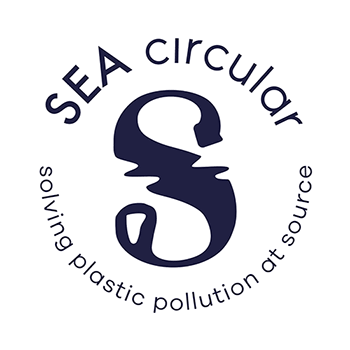
Bangkok, 7 June 2019 – UN Environment, supported by the Government of Sweden, is forging partnerships between Government agencies, the private sector, civil society and academia in Thailand, to tackle the transboundary challenge of marine litter.
A new initiative ‘SEA circular – solving plastic pollution at source’ is focussing on identifying market-based solutions and enabling policies to prevent marine plastic pollution. Striving for less plastic wasted and a more circular economy requires commitment from stakeholders throughout the plastic value chain.
Plastic debris is a major threat to marine ecosystems. Globally, more than 80 per cent of marine plastic litter comes from land-based sources. Rapid growth, combined with inadequate waste management capacity, means that five Asian countries alone – Thailand is one of them – may be responsible for as much as 60 per cent of plastic waste leakage into the oceans.
SEA circular held a Thailand Stakeholder Consultation on Reducing marine litter by addressing the management of the plastic value chain in South East Asia on 7 June 2019. The event was convened by UN Environment, the Coordinating Body on the Seas of East of Asia (COBSEA), and the Thai Ministry of Natural Resources and Environment (MoNRE), supported by the Government of Sweden. A wide range of delegates attended, from local government, private sector, academia, civil society organizations, UN agencies and other inter-governmental agencies.
“A healthy environment relies on us seeking solutions to marine plastic pollution by working in partnership with regulators, investors and policymakers, throughout the plastic value chain,” said Isabelle Louis, Deputy Regional Director, UN Environment.
UN Environment encourages a ‘people-centred approach’ to marine waste management, to support the most vulnerable groups impacted by marine litter and to improve the living standards of the informal waste management sector.
The Government of Thailand affirmed their commitment to strengthening partnerships to tackle marine plastic pollution – to meet their objectives in the Roadmap on Plastic Waste Management 2018-2030, and under the ASEAN Framework of Action on Marine Debris. The Government recently announced that they will phase out seven types of plastic items starting in 2019 and completing in 2022 – including plastic bottle cap seals, oxo-type plastics, microbeads, plastic bags of less than 36 microns, foam food containers, single-use plastic cups, and plastic straws. The country also aims to recycle 100% of plastic waste by 2027.
The Food and Drug Administration of Thailand (FDA) outlined plans to revise restrictions on the use of recycled plastic for food packaging, through collaboration between government agencies and the private sector.
Innovative solutions to plastic pollution were presented by influential corporations, including the Siam Cement PLC / SCG, Coca-Cola Thailand Ltd. and IKEA Southeast Asia – who are spearheading new ways to do business, whilst reducing their plastic footprint and minimizing waste to landfill. Local government officials from Rayong and Chiang Mai presented their actions to promote circular economy principles. Grassroots movements such as Trash Hero showcased how they are galvanizing action and raising awareness. Also in attendance were biodegradable packaging company Gracz, Food Industry Association (FIA), Phuket Hotel Association, Swedish Thai Chamber of Commerce and a range of corporations and private sector organisations.
“It is inspiring to hear about the ambitious commitments against plastic pollution here in Thailand. Together, we can work for a more circular economy and cleaner seas,” said Staffan Herrström, Swedish Ambassador to Thailand.
A new logo and branding for SEA circular were launched during the Thailand Stakeholder Consultation.
Next steps for SEA circular include the first annual ‘SEA of Solutions’ partnership week, at the UN Conference Centre in Bangkok, 11-15 November 2019. ‘SEA of Solutions’ will build multi-stakeholder partnerships between governments, the private sector, international investors and innovators, local communities and grassroots organisations, to solve plastic pollution at source.
About SEA circular:
‘SEA circular– solving plastic pollution at source’ aims to reduce the adverse impact of marine plastic litter by ensuring that less plastic enters waste streams and is leaked into the marine environment. The project is funded by the Swedish Government and implemented by UN Environment Programme (UN Environment) and the Coordinating Body on the Seas of East Asia (COBSEA). The project works in partnership to involve stakeholders throughout the plastic value chain, from governments, to plastic producers and retailers, to waste managers and consumers, to disadvantaged groups such as coastal communities and informal waste pickers who are most impacted by plastic pollution. SEA circular is operational from 2018 to 2022.
About UN Environment Programme:
UN Environment Programme is the leading global voice on the global environment. It provides leadership and encourages partnership in caring for the environment by inspiring, informing, and enabling nations and peoples to improve their quality of life without compromising that of future generations. UN Environment Programme works with governments, the private sector, the civil society and with other UN entities and international organizations across the world.
About COBSEA:
The Coordinating Body on the Seas of East Asia (COBSEA) oversees the implementation of the East Asian Seas Action Plan to protect the marine and coastal environment for the health and wellbeing of present and future generations in the East Asian Seas region. Efforts are focused on addressing land-based marine pollution; strengthening marine and coastal planning and management; and sharing marine environmental management experiences and policies towards strengthened regional governance. The Secretariat for COBSEA is hosted by Thailand and administered by UN Environment Programme. COBSEA is one of 18 Regional Seas programmes for the sustainable management and use of the marine and coastal environment.
news
